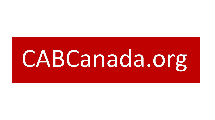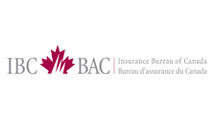Continuing from the ADRIC diversity series, Karen Snowshoe and Vicki Enns returned to continue providing ideas for ADRIC members and other interested professionals about how to take A Trauma-Informed Approach to Managing ADR. We regret this recording is no longer available.Recorded April 7, 2021 - 12 PM - 1PM ET
In this installment, they build on the information of how trauma affects our brain function, and using this knowledge to better meet our clients’ needs and respond constructively. Also, they will discuss the importance of awareness and care of how we ourselves are impacted by this work, whether we serve as legal counsel, human resources professionals, mediators, arbitrators or other ADR practitioners. Topics include:
• Strategies to heighten our awareness of those who may be triggered by trauma and practical tools to support them
• Strategies to support ourselves: vicarious trauma and vicarious resilience (building a “tool-kit”)
• What resources can help practitioners expand their knowledge in this area
The Facilitators:
 Karen Snowshoe is a Lawyer, Arbitrator, Mediator and Workplace Investigator. Since 2009, Ms. Snowshoe has provided Adjudication services (claims of first instance and appeals) and Mediation services across Canada. Her main clients have included the Indian Residential School Adjudication Secretariat, the Northwest Territories Human Rights Adjudication Panel and the Workers’ Compensation Tribunal of the Northwest Territories and Nunavut. She has chaired two Federal Land Claim Arbitration Panels and maintains membership in numerous professional organizations dedicated to the administration of justice. She has held over 150 hearings across Canada and written 100+ well-reasoned decisions involving claims of first instance and appeal.
Karen Snowshoe is a Lawyer, Arbitrator, Mediator and Workplace Investigator. Since 2009, Ms. Snowshoe has provided Adjudication services (claims of first instance and appeals) and Mediation services across Canada. Her main clients have included the Indian Residential School Adjudication Secretariat, the Northwest Territories Human Rights Adjudication Panel and the Workers’ Compensation Tribunal of the Northwest Territories and Nunavut. She has chaired two Federal Land Claim Arbitration Panels and maintains membership in numerous professional organizations dedicated to the administration of justice. She has held over 150 hearings across Canada and written 100+ well-reasoned decisions involving claims of first instance and appeal.
Ms. Snowshoe is passionate about providing trauma-informed and culturally sensitive investigations. As senior counsel with the National Inquiry into Missing and Murdered Indigenous Women & Girls (MMIWG), Ms. Snowshoe built, trained and led a national team of statement gatherers who conducted trauma-informed interviews across Canada, on a confidential basis. Ms. Snowshoe has also facilitated agreements between a variety of Indigenous and non-Indigenous organizations.
In 2018, Ms. Snowshoe was elected as a Bencher (Governor) of the Law Society of British Columbia. Ms. Snowshoe’s brings a unique perspective to the governance of the Law Society. She has made valuable contributions in the following areas: Access to Justice, Equity, Diversity & Inclusion, Credentials, Practice Standards, Truth & Reconciliation, Mental Health Task Force and the Disciplinary process. Ms. Snowshoe is the first Indigenous woman to be elected as a Bencher in the B.C. Law Society’s history. Ms. Snowshoe has been a long-time resident of Vancouver. She also lived and worked in Canada’s north (the Yukon and the Northwest Territories) for 14 years.
 Vicki Enns is the Clinical Director of the Crisis & Trauma Resource Institute, and an Approved Supervisor with the American Association for Marriage and Family Therapy. She is the editor and co-author of two books Counselling Insights and Counseling in Relationships. In her private practice, she specializes in the area of trauma recovery across the lifespan, and she helps individuals, couples, and families build positive mental health and relational skills across developmental stages. She believes in a holistic approach to wellness that applies to both clients and helpers. Vicki also believes that it is essential for helpers to continue learning and developing their self-awareness alongside evolving clinical skills. As a trainer, she is particularly gifted at creating a learning atmosphere that is collaborative and respectful, and which embraces diversity in personal identity, skills, and cultural perspectives.
Vicki Enns is the Clinical Director of the Crisis & Trauma Resource Institute, and an Approved Supervisor with the American Association for Marriage and Family Therapy. She is the editor and co-author of two books Counselling Insights and Counseling in Relationships. In her private practice, she specializes in the area of trauma recovery across the lifespan, and she helps individuals, couples, and families build positive mental health and relational skills across developmental stages. She believes in a holistic approach to wellness that applies to both clients and helpers. Vicki also believes that it is essential for helpers to continue learning and developing their self-awareness alongside evolving clinical skills. As a trainer, she is particularly gifted at creating a learning atmosphere that is collaborative and respectful, and which embraces diversity in personal identity, skills, and cultural perspectives.
Professional Development Accreditation:
- ADRIC Continuing Education & Engagement (CEE) points: 2
- Law Society of New Brunswick: 1 hour
- Law Society of Ontario: 1 hour Substantive
- Law Society of Saskatchewan: 1 hour
- CPD accreditation pending from all Law Societies across Canada
More information about ADRIC Webinar: Trauma Informed Practice – Part 3












